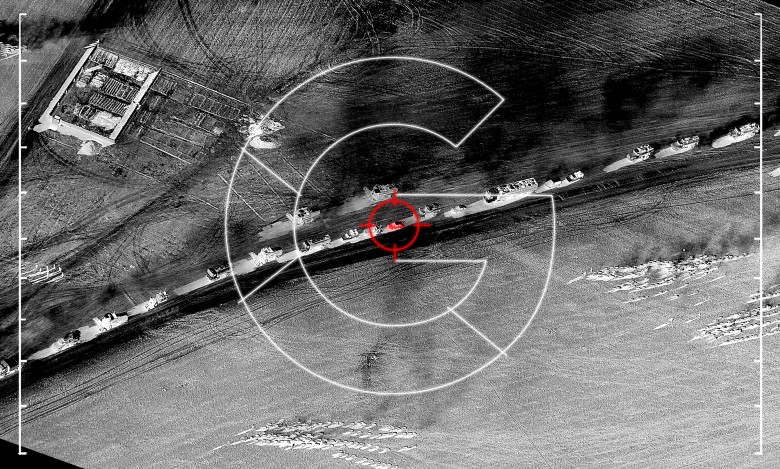Google helps the Pentagon to recognize images from military drones

The Gizmodo publication has become known from anonymous sources at Google that among the company's ordinary employees there was a heated discussion on one joint project that Google is launching with the US Department of Defense. We are talking about the project Maven , which the Pentagon launched in April 2017.
As part of Project Maven, by the end of 2017, it was planned to “introduce advanced computer algorithms into government platforms for recognizing objects in a large number of moving or still images”.
')
Everyone knows that Google has long been developing computer vision systems, and its neural networks have repeatedly won the competition for the accuracy of object recognition. There is a suspicion that now the American army can take advantage of these advanced developments.
"People and computers will work together to increase the ability of weapons systems to detect objects," said Drew Cukor, head of the Algorithmic Warfare Cross- group in his speech at the Defense One Tech Defense Summit in July 2017. Function in the Intelligence and Surveillance Office of the Office of the Deputy Secretary of Defense for Intelligence. “In the end, we hope that one analyst will be able to do twice as much work, potentially three times more than now.” This is our goal. ” Kukor then described the algorithm as 75 lines of Python code "inside a large software and hardware complex". He said that first of all, the recognition of 38 classes of objects, which are especially necessary to detect in current operations against ISIL (banned in Russia) in Iraq and Syria, is of interest.
Project Maven is fully focused on the development of military computer vision systems using neural networks. For these purposes, applications for the purchase of necessary equipment, including powerful GPUs in large quantities, have been drawn up.
Even then, the head of the Algorithmic Warfare Cross-Function group recognized that the only way to achieve the goals set was to cooperate with commercial companies that specialize in this area. He then said that five large American companies specialize in this area, and the machine vision industry itself is booming. In 2016, the private sector invested $ 36 billion in these technologies. Now it is known with whom exactly the Pentagon plans to cooperate. This is google.
Last week, Google organized a mailing list to its employees, where it notified them about participation in Project Maven. Some expressed disagreement with the fact that the company provides services to the military. Others suggested that this project generally raises important ethical questions about the development and use of machine learning and AI systems.
Last autumn, at the summit on Artificial Intelligence and Global Security Systems, Eric Schmidt expressed concern that such advanced computer vision and AI systems might "not be used correctly by the military to kill people." According to him, in the technology industry there is some concern about this, because, generally speaking, IT companies are not at all developing machine vision systems. Many scientists and researchers from universities and departments of AI do not assume that their development can be used in this way.
But the Pentagon thinks otherwise. The Maven project was launched in April 2017, and last year the Department of Defense invested a total of $ 7.4 billion in areas related to Artificial Intelligence, the Wall Street Journal wrote . Now all the work on the purchase of hardware and software, as well as the introduction of AI systems is coordinated through the Maven project.
The most obvious and top-priority task is object recognition and analytical processing of a huge number of video frames taken by reconnaissance drones. About this and spoke above Colonel Kukor.
Google’s collaboration with the Pentagon is somewhat surprising, because this company has never been particularly close to the US government. Unlike the same Microsoft and Amazon, which even have special cloud service packages for government use.
But now de facto cooperation has begun. It is known that Google already provides the military with access to the TensorFlow API program interfaces through which objects are recognized on military aerial photography frames.
Perhaps it could have been foreseen. If any technology can be used to gain a military advantage, it will definitely be used in this way. I wonder if Google on market conditions will begin to provide the same service to military customers from other countries. Except for rogue states, of course.
Source: https://habr.com/ru/post/410879/
All Articles